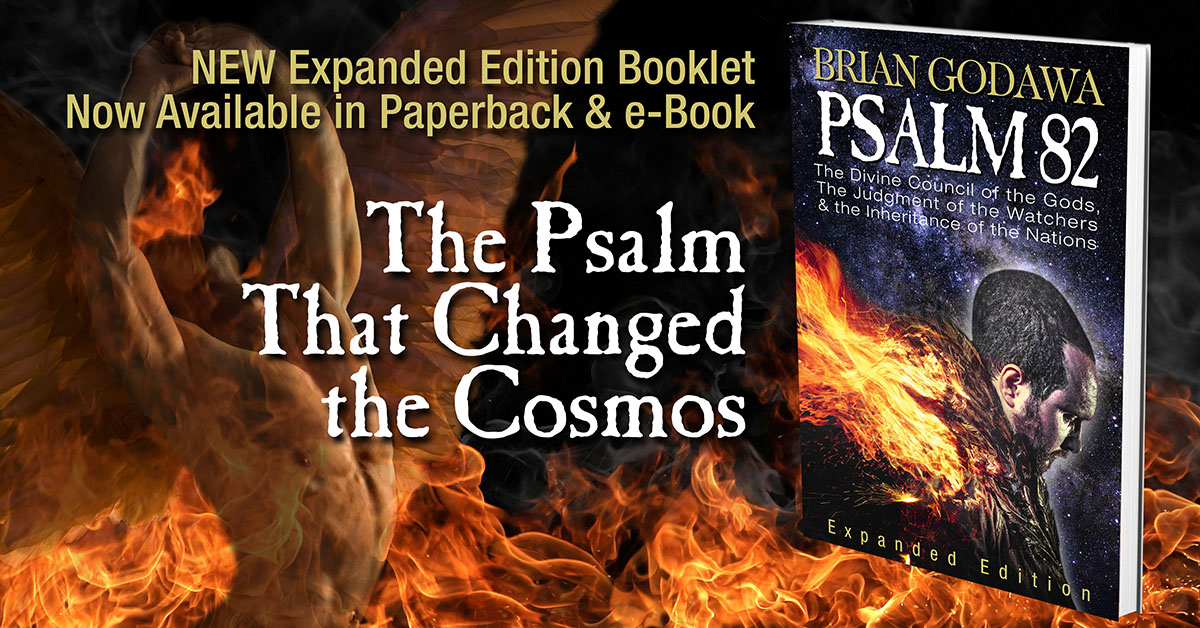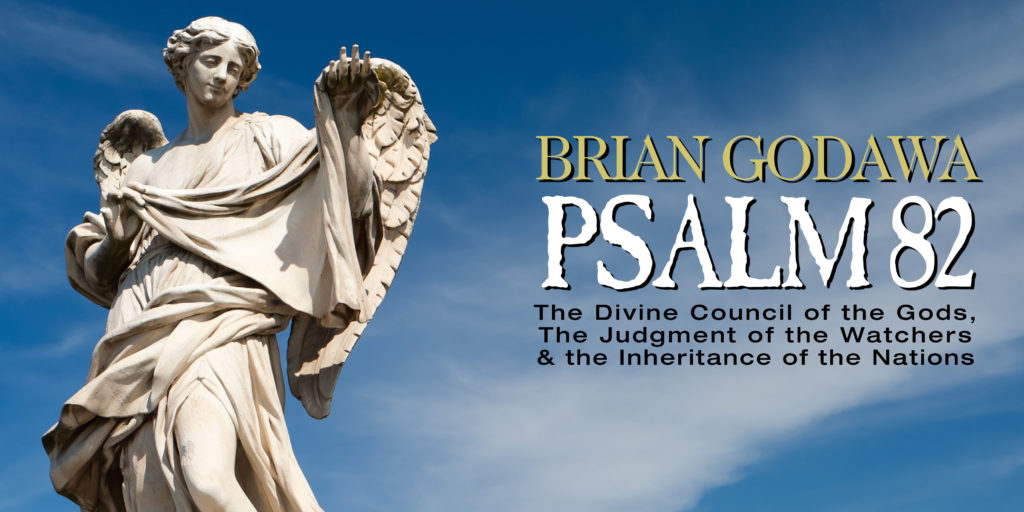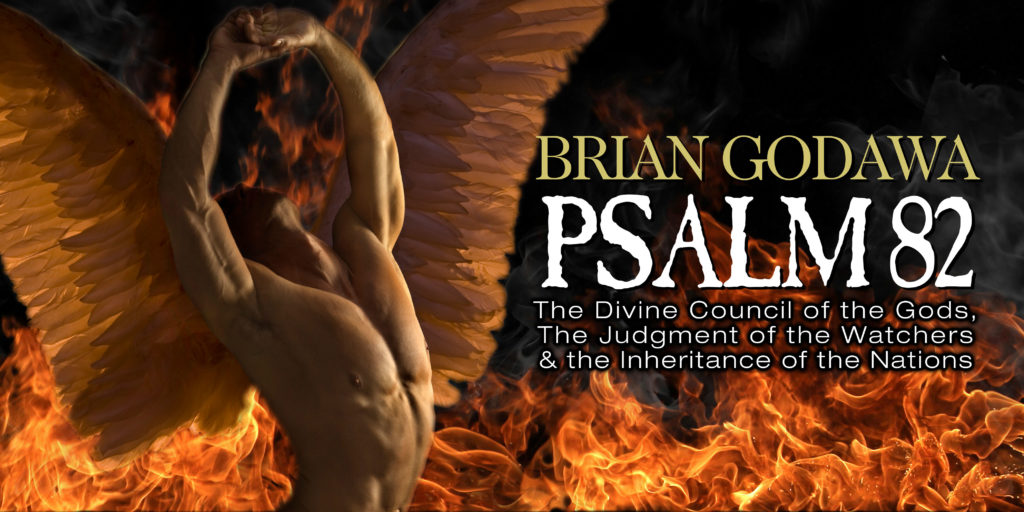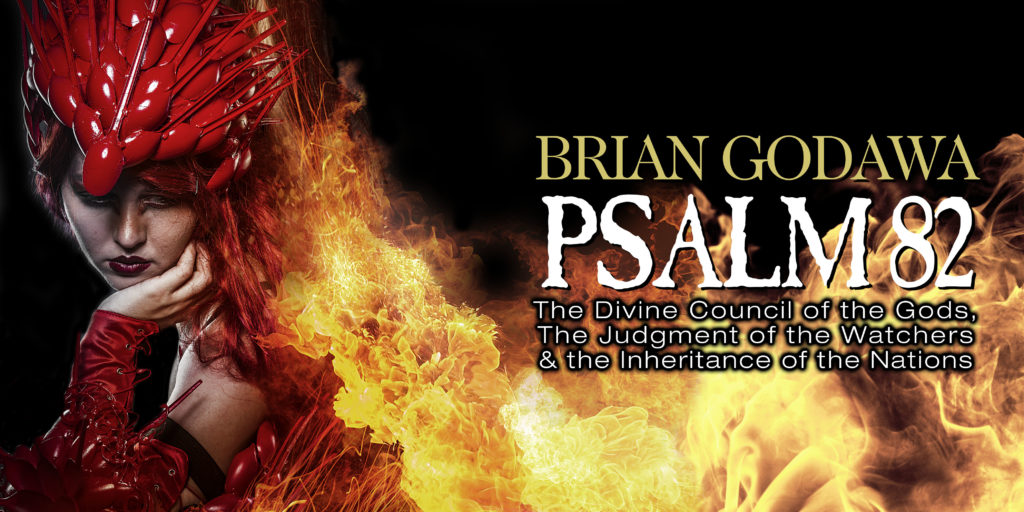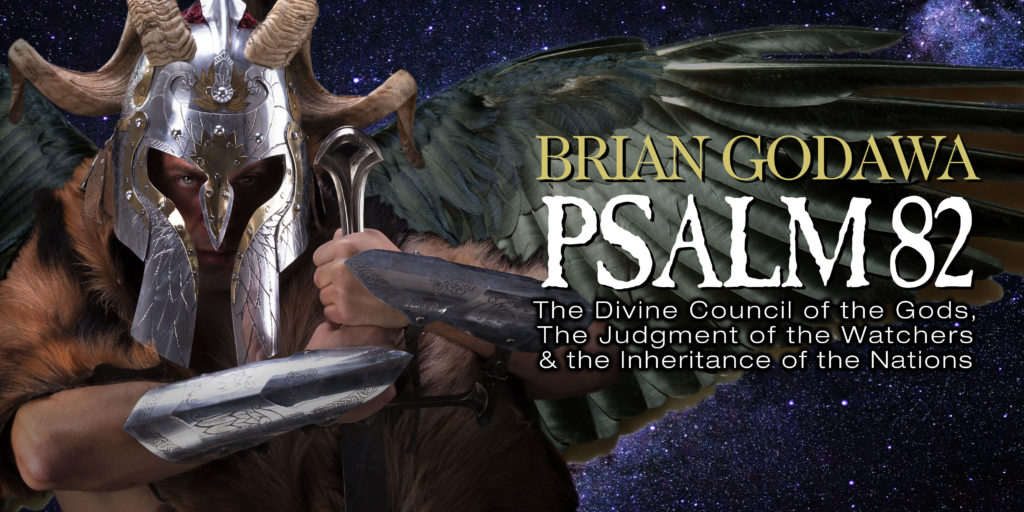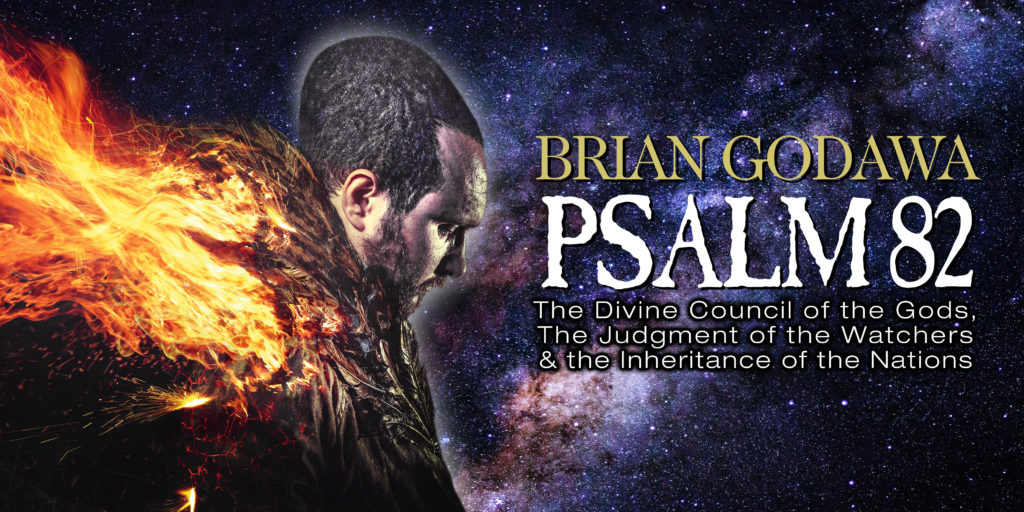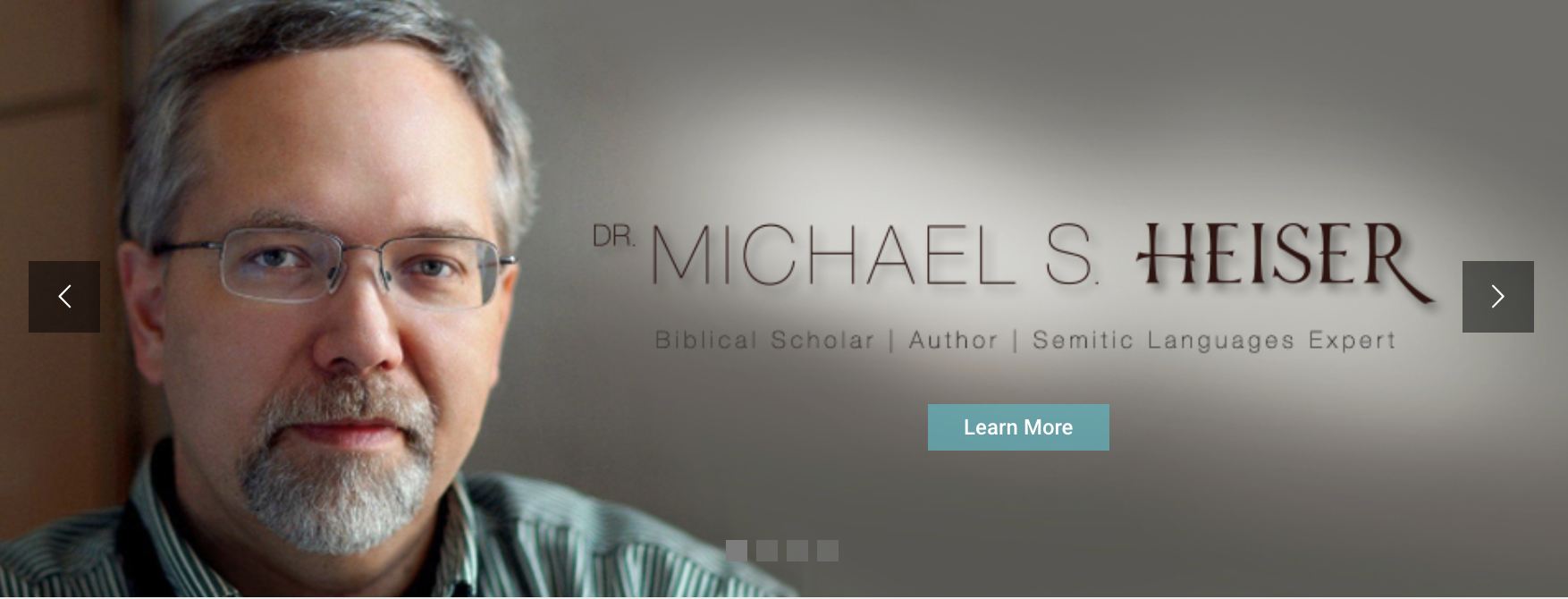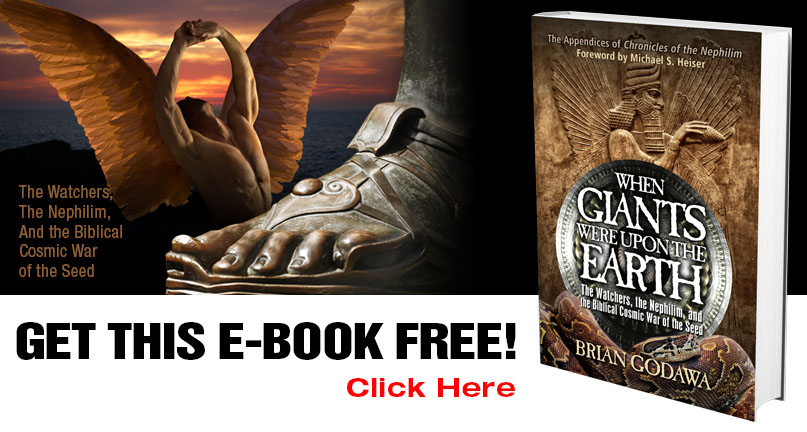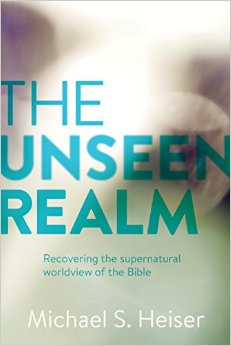
Psalm 82
God has taken his place in the divine council; in the midst of the gods he holds judgment.
That was the Bible chapter that started the journey for author and scholar, Michael Heiser. He describes in his book that he had come from a traditional Evangelical background, so the notion of there being other “gods” beside Yahweh was anathema. Monotheism means there is only one God, right?
But as he sought to understand what it all meant, it opened up a whole new world of theological messaging that reveals the supernatural worldview of the Bible.
And that is what this book did for me. I dedicated my bestselling Biblical Fantasy series first novel, Noah Primeval to Michael Heiser because this theological messaging helped open my eyes to my own modern Christian ignorance of the ancient Near Eastern background of the Bible. Like Elisha’s servant opening his eyes to see the myriad of heavenly host surrounding the valley, so I now saw God’s heavenly host as part of a storyline of redemption that traditional Evangelicalism has missed or misunderstood because of its obsession with modern categories and hermeneutics when interpreting the Bible. (Full disclosure: I now know Michael Heiser personally after reading an early draft of the book)
Heiser lays out a Biblically strong argument that can be read and understood by laity. What is so cool is that it is not just an argument, it is a story. He is clear, concise, and very readable without falling into that trap of abstraction and dry prose that many scholars fall into.
But make no mistake, Heiser is a scholar. His emphasis is in the fields of Biblical Studies and the Ancient Near East. He is published widely in scholarly journals and even has online courses in Hebrew, Greek, Ugaritic (the language of ancient Canaan) Akkadian, Egyptian and Aramaic. This scholarly dude has academic bona fides and he cannot be dismissed. Which is why I think this book will be a game-changer in Evangelical theology. Read it, and you’ll be on the crest of an exciting wave of fresh understanding of the Scriptures.
Heiser avoids both extremes of conservative hyper-literalism and liberal critical demythologizing. He seeks to interpret the text within its ancient Near Eastern context rather than the modern one, which is where both conservative and liberal scholars fail.
Here are just a few of the amazing discoveries you will encounter when reading the book…
The Divine Council
Psalm 89:6–7
For who in the skies can be compared to the Lord? Who among the gods is like the Lord, a God greatly to be feared in the council of the holy ones, and awesome above all who are around him?
God is surrounded by a myriad of heavenly host who are called by many names, like, “gods, “Sons of God,” “Holy Ones,” and “divine council.” They are not merely “angels” floating around his throne, they are divine beings. Yes, divinity in the Bible is not the exclusive prerogative of Yahweh, and it isn’t the same thing as Mormons think either. And these heavenly host have more to do than merely singing “glory” and shining up the place with their bronze-like brightness. They counsel with God (Job 1, 2) and perform tasks appointed by God (1Kings 22), they mediate the Law of God to man (Galatians 3:19 ), perform as witnesses to God’s covenants and curses (Deut 33:1-4; Zech 2-3), and engage in heavenly wars (Daniel 10). There is so much more to these divine beings than meets the casual Bible reader’s eye.
Sons of God and the Nephilim
Genesis 6:4
The Nephilim were on the earth in those days, and also afterward, when the sons of God came in to the daughters of man and they bore children to them. These were the mighty men who were of old, the men of renown.
Okay, this is where a lot of popular Bible teaching gets goofy. But not Heiser. He deftly proves that the Sons of God were not human, but supernatural divine beings from God’s heavenly host, who fell to earth in rebellion and produced diabolical progeny of giants called Nephilim. Yes, giants, NOT merely human “fallen ones.”
This is not some Ancient Aliens mythology, nor is it the sensationalist version that many Christian Nephilim Nuts are teaching. There is a reason for it all, and it has to do with the war between the Seed of the Serpent and the messianic Seed of Eve (Gen. 3:15). And it comes into play many other times in the Old Testament. Many western readers miss it because of our modernist cultural prejudice.
The Divine Allotment
Deuteronomy 32:8–9
When the Most High gave to the nations their inheritance, when he divided mankind, he fixed the borders of the peoples according to the number of the sons of God. But the Lord’s portion is his people, Jacob his allotted heritage.
At the Tower of Babel, God “gave over” the godless to their idols (Romans 1). he placed them under the authority of fallen Sons of God. They are allotted as an inheritance. Each pagan nation is ruled over by these territorial “principalities and powers” who own the deeds to their lands (Daniel 10; Col 2:15; Eph. 6:12). It’s like these fallen gods of the nations are linked to their earthly counterparts of authority, so that whatever happens on earth happens in heaven (Matt 6:10; Dan 10).
When Messiah came, he disinherited the gods and took all the “land deeds” to the nations back, drawing people into the Kingdom of God from every tribe and nation.
Return of the Giants
Joshua 11:21–22
And Joshua came at that time and cut off the Anakim [giants] from all the hill country of Israel. Joshua devoted them to destruction with their cities. There was none of the Anakim [giants] left in the land of the people of Israel.
So, those giants of Genesis 6 were not a myth or a strange anomaly. They were part of the war of the Seed of the Serpent with the Seed of Eve. And Joshua’s Holy Wars now make more sense because the Anakim giants in the land of Israel (as well as other giant clans) came from the original Nephilim giants of Genesis 6 (Numbers 13:32-33). There is more going on here than merely strange beings showing up arbitrarily in the Bible. And by the way, it says Joshua actually left some in the land of Philistia, you know, that place from whence came the most famous giant of all, Goliath, whom the Messiah King David would slay, along with the last of the Rephaim giant warriors in the land. But there is so much more to it than that. More giants, more Nephilim. We’ve just missed them because we didn’t read the text closely enough, or in it’s original context.
The New Sons of God
Galatians 4:4–7
But when the fullness of time had come, God sent forth his Son, born of woman, born under the law, to redeem those who were under the law, so that we might receive adoption as sons. And because you are sons, God has sent the Spirit of his Son into our hearts, crying, “Abba! Father!” So you are no longer a slave, but a son, and if a son, then an heir through God.
Christians are “in Christ,” and as such, we have been legally adopted as sons of God, to be one day historically glorified or transformed to be like Christ, the Unique Son of God (1John 3:2). And we will inherit the earth, that which the fallen Sons of God had lost through their failure to rule (Psalm 82). Christ now inherits all the earth, and we inherit with Him and in Him — in place of those original Sons of God.
So Much More
Wow, and believe me, that is only the tip of the ziggurat of all the amazing spiritual truths and theological storyline that Heiser uncovers in Scripture. This Divine Council worldview finally makes sense of so many of the bizarre passages in the Bible that used to seem like strange oddities we would never understand, relics of an ancient world. The Unseen Realm makes the storyline of God’s family inheritance and victory over evil come alive like nothing I’ve read before.
The Unseen Realm is not your mamby pamby “Christian Living” book with six steps to success and how to live a happy talk Christian walk. It’s not a Pietistic book of formulas to manufacture subjective spiritual experiences. It’s not an alternative Christian conspiracy theory to pull you away from the Gospel. This is gritty in-depth Biblical study that opens up the work of God to your mind, heart and soul with fresh excitement and wonder of His glorious mysterious ways.
But it here at Amazon. Buy it now. You won’t regret it. You’ll thank me.

